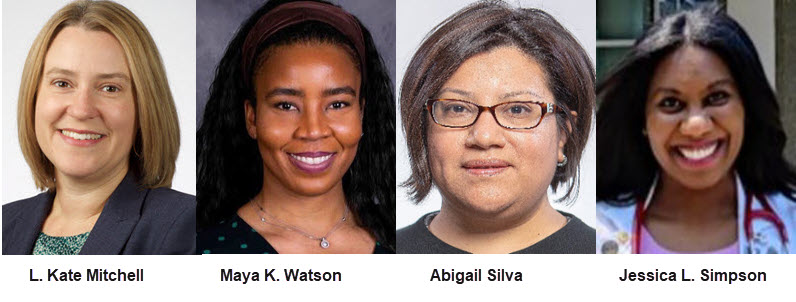Abstract
Excerpted From: L. Kate Mitchell, Maya K. Watson, Abigail Silva and Jessica L. Simpson, An Inter-professional Antiracist Curriculum Is Paramount to Addressing Racial Health Inequities, 50 Journal of Law, Medicine & Ethics 109 (Spring, 2022) (Full Document) (61 Footnotes)

Racial disparities in health date beyond our country's founding. Black people fare worse than white people across a range of health outcomes, including birth outcomes, chronic conditions, and mortality. In 2019, Black Americans were expected to live an average of 4.1 years fewer than their white counterparts. Preliminary data show that the COVID-19 pandemic may have widened the disparity to an astonishing 6 years. COVID-19's disparate impact and recent social unrest following police killings of Black people had fueled growing demands for curricula in law, medicine, and public health to critically examine health inequities and teach antiracism.
As law, medical, and public health schools across the country endeavor to create more opportunities to educate about racism and its impacts on health inequities, we share some examples of how Loyola University Chicago students and faculty are utilizing interprofessional and experiential curricular and volunteer opportunities to educate students on the health implications of racism and develop skills to create and sustain antiracist practices. While we acknowledge that racism and discrimination have impacted the health of many racial and ethnic groups demanding attention in our curricula, this article intentionally focuses on racism and its effect on the health of Black people.
In this article, we: (1) acknowledge the complicity of our disciplines in contributing to structural racism and health inequities; (2) outline calls for incorporating antiracist education and interprofessional training into our curricula; (3) share examples from our institution of interprofessional didactic, experiential, and volunteer opportunities in antiracism and health equity; and (4) discuss challenges and opportunities in integrating antiracist and interprofessional training into our curriculum.
[. . .]
Our professions are compelled to teach about the intersection of racism and health and to provide antiracist and health equity advocacy tools to our students. These professions have perpetuated structural racism and continue to be complicit in creating and maintaining systems and structures that result in extreme health inequities. Lawyers engaged in health law practice, physicians, and public health professionals should therefore work to combat racism by employing antiracism tools in their professions to transform systems and reduce health disparities. We should provide tools to our students to understand clients, patients, and communities in the context of racism. There are a number of models of courses and activities, clinical, experiential and student volunteer and organizational activities that can further these goals. Our communities, our students, our patients, our clients, and our colleagues are rightfully demanding this. It is long overdue.
a1
L. Kate Mitchell, J.D., is a Clinical Professor of Law and Medicine and the Director of the Health Justice Project Clinic at Loyola University Chicago in Chicago, Illinois, USA.
Maya K. Watson, J.D., LL.M., is the Director of the Maywood Medical-Legal Partnership and a Clinical Teaching Fellow with the Health Justice Project at Loyola University Chicago School of Law in Chicago, Illinois, USA.
Abigail Silva, Ph.D., M.P.H., is an Assistant Professor in the Parkinson School of Health Sciences and Public Health at Loyola University Chicago in Chicago, Illinois, USA. Professor Silva is an epidemiologist and health equity researcher.
Jessica L. Simpson, M.P.H., M.D. Candidate, is a student at Loyola University Chicago Stritch School of Medicine in Chicago, Illinois, USA, and is the founder of its White Coats for Black Lives Chapter.,, 25 Quinnipiac Health L.J. 259


